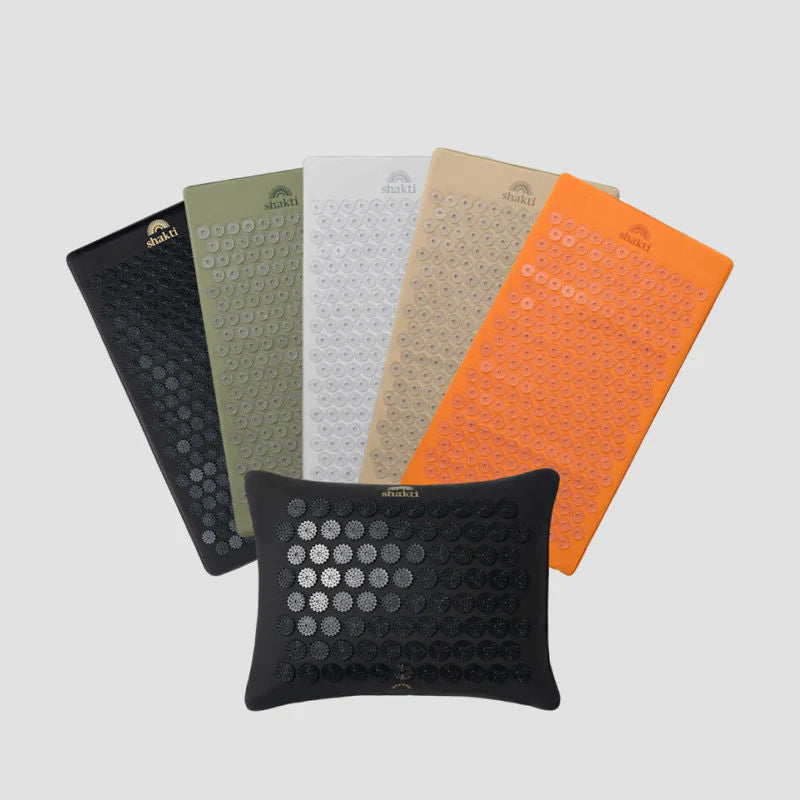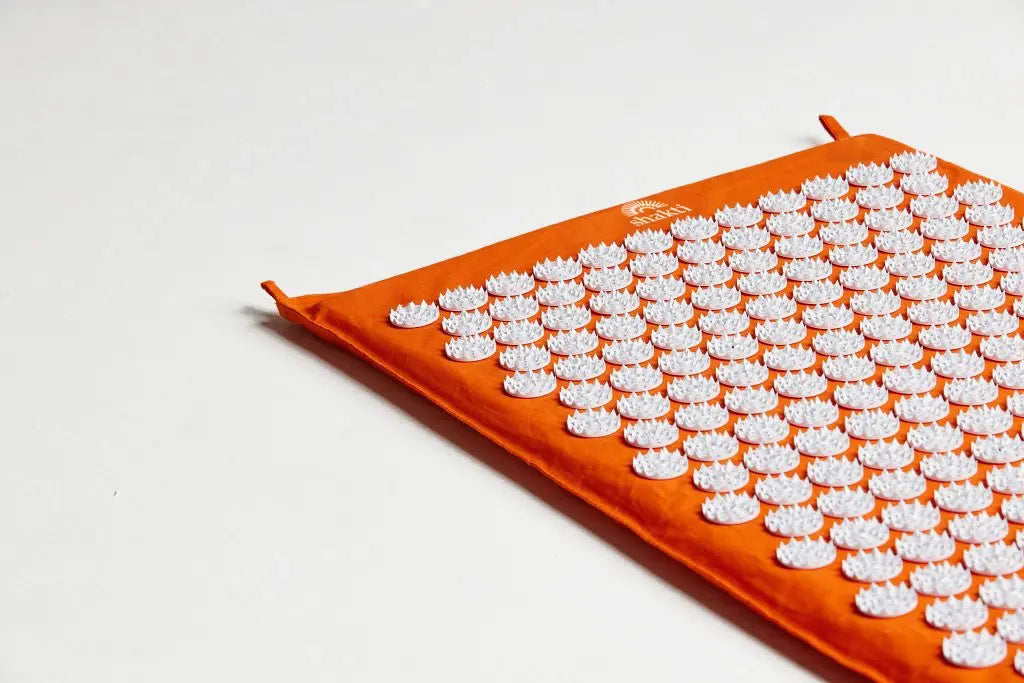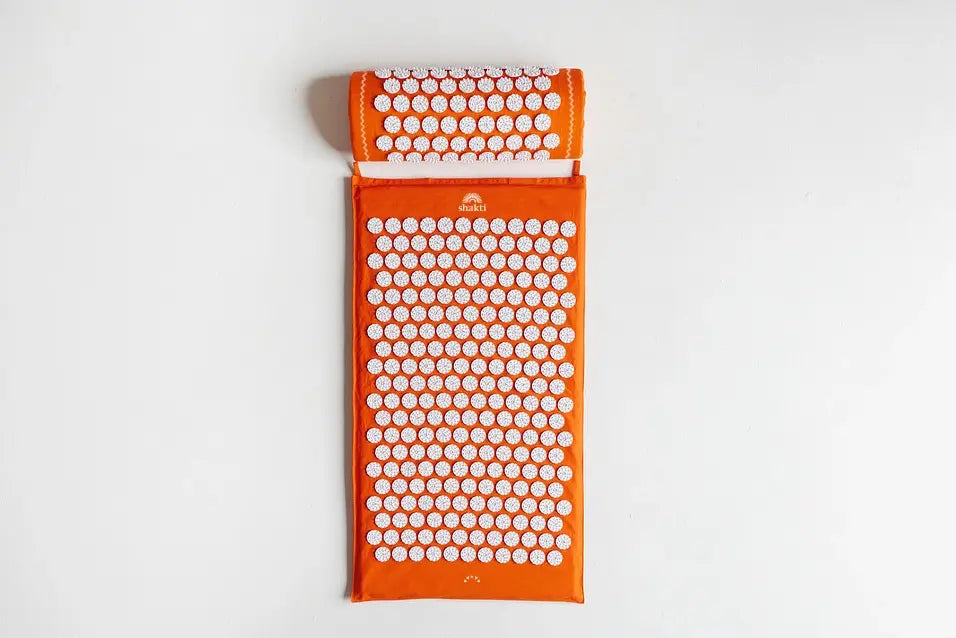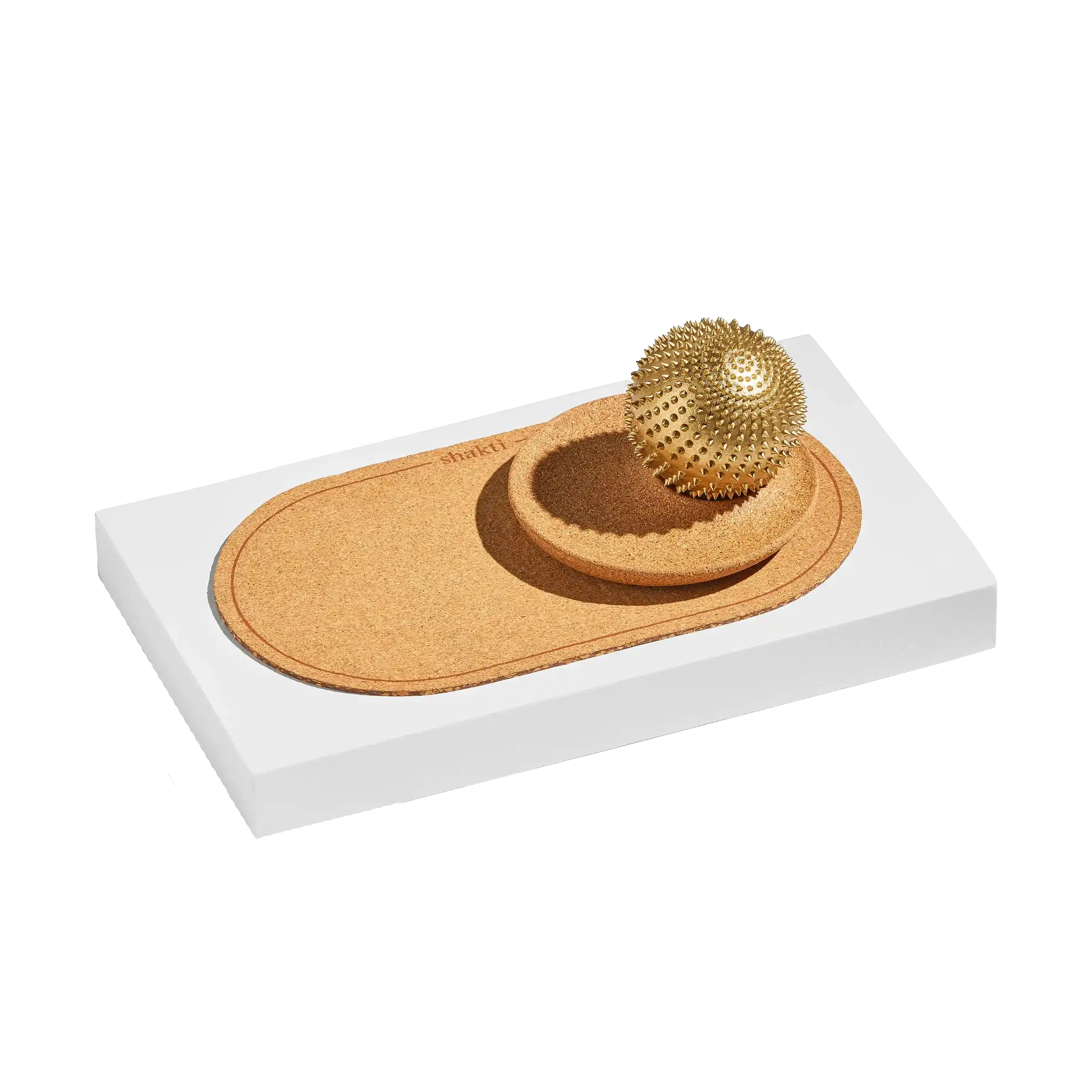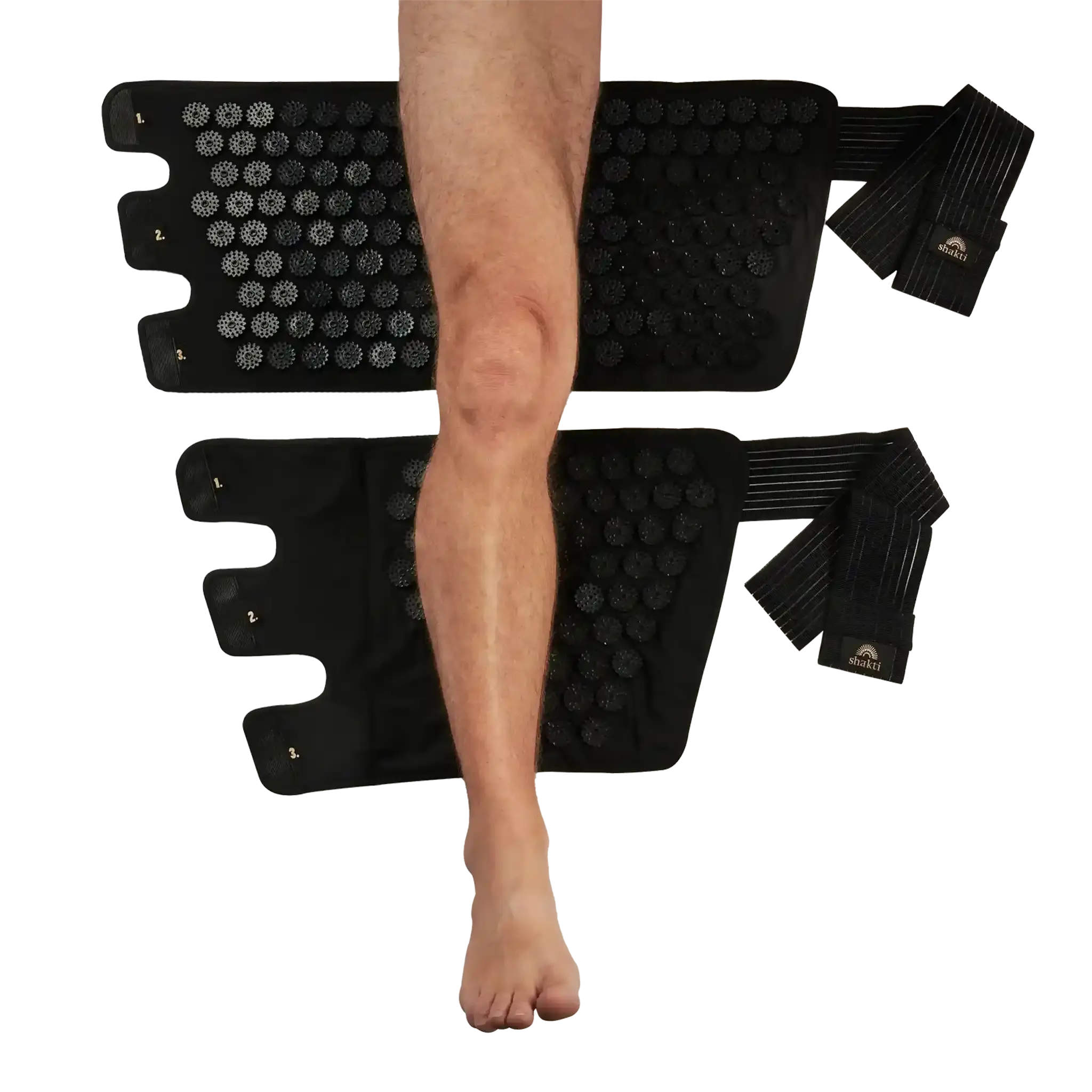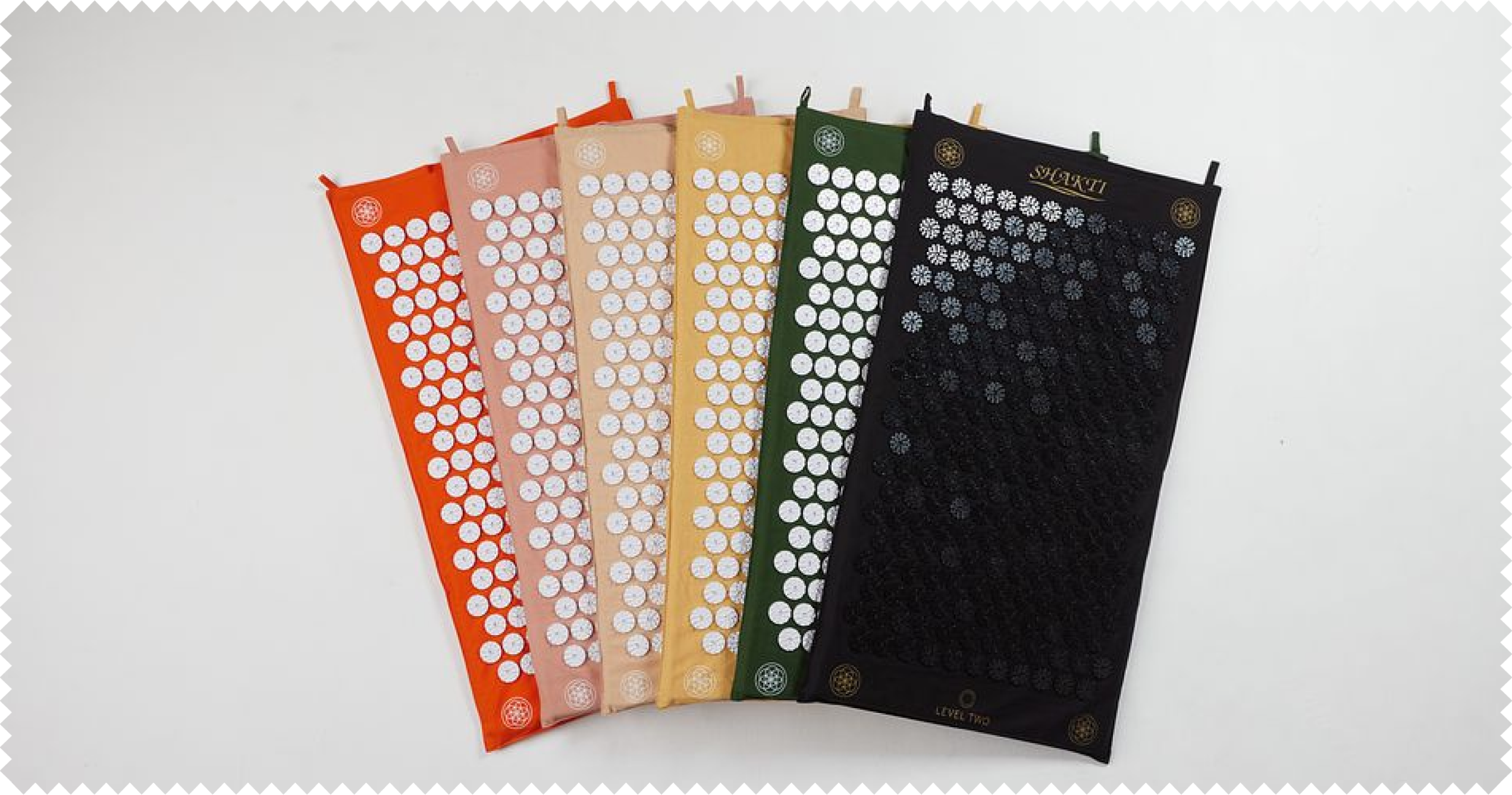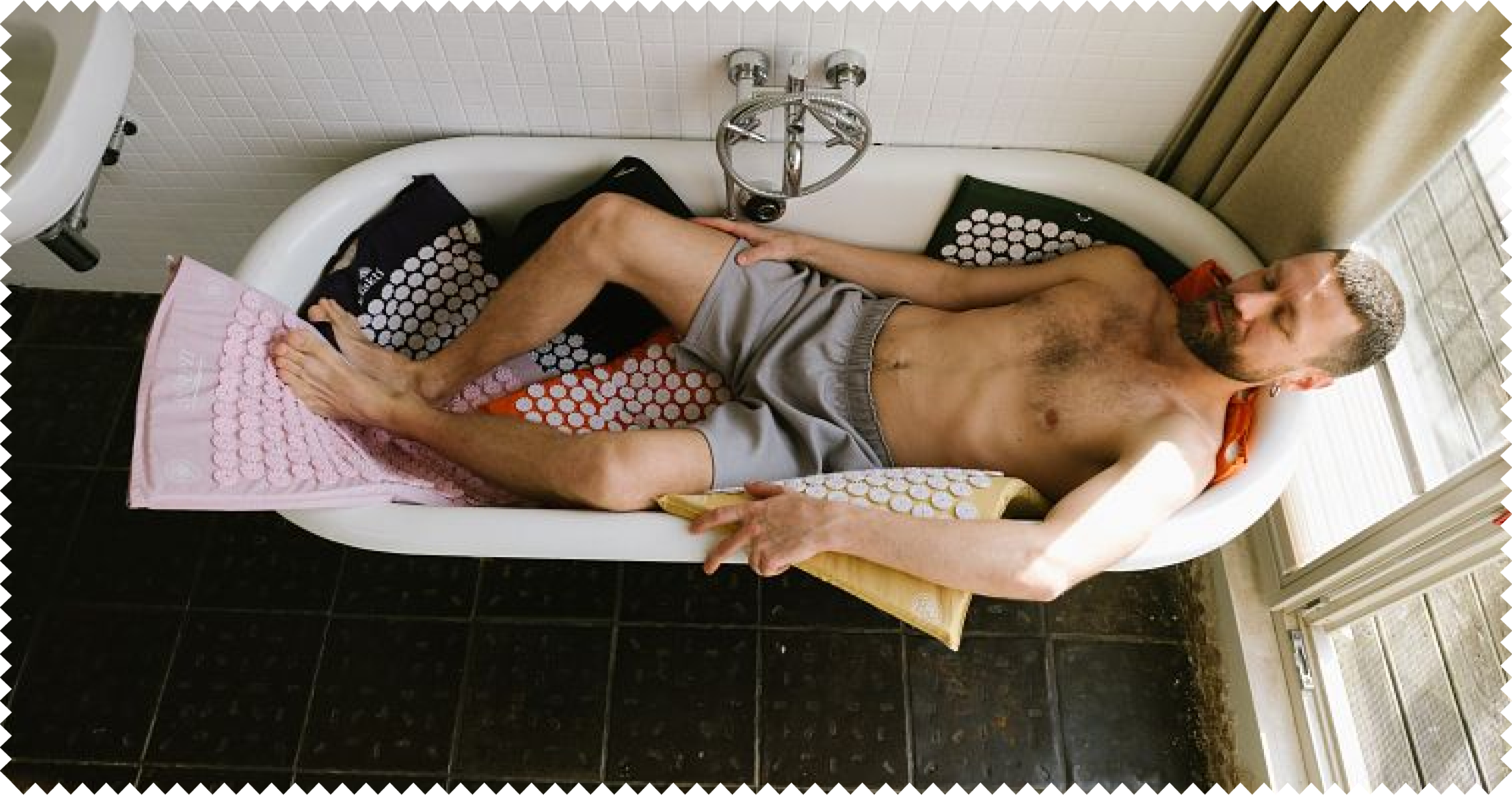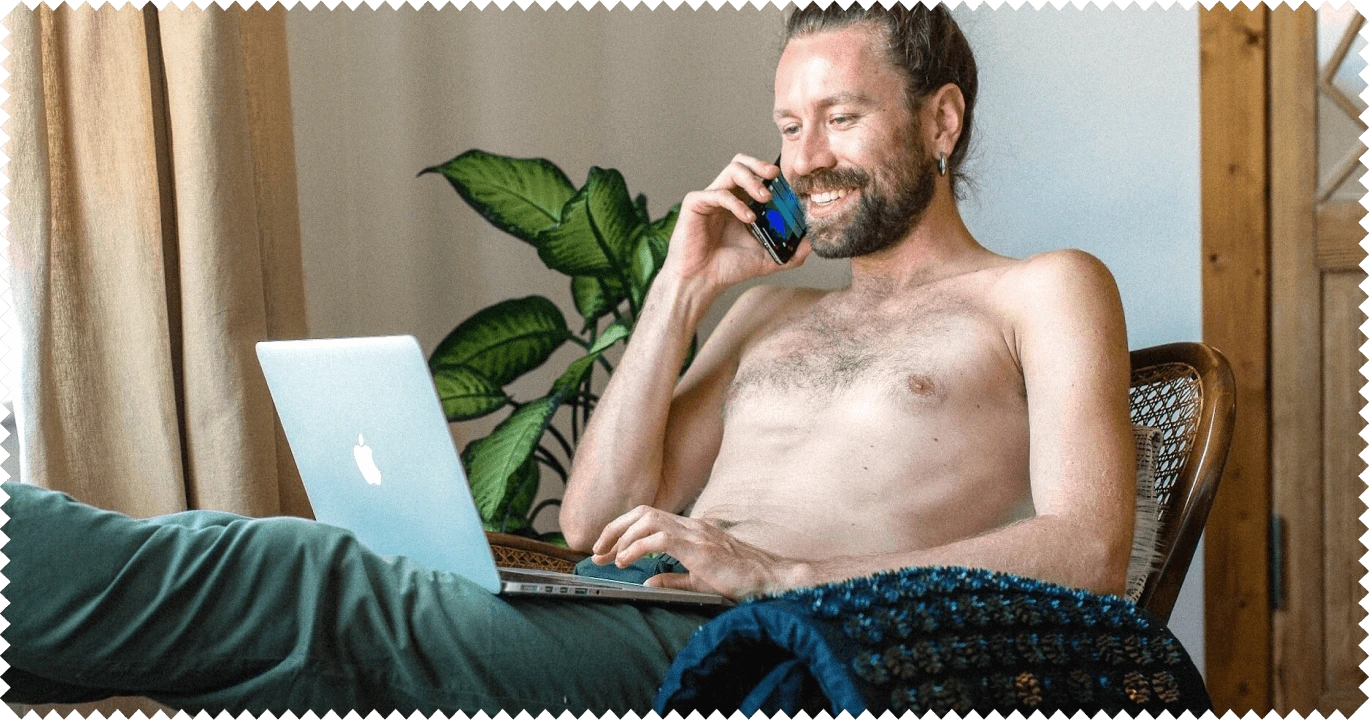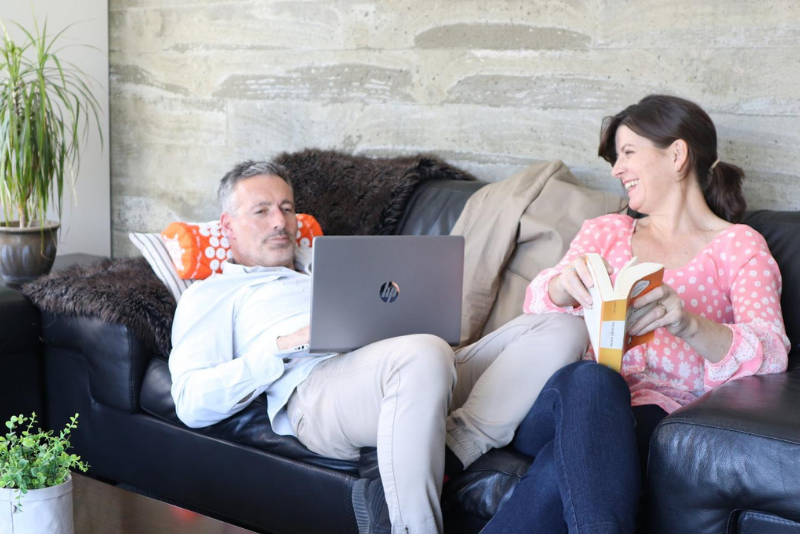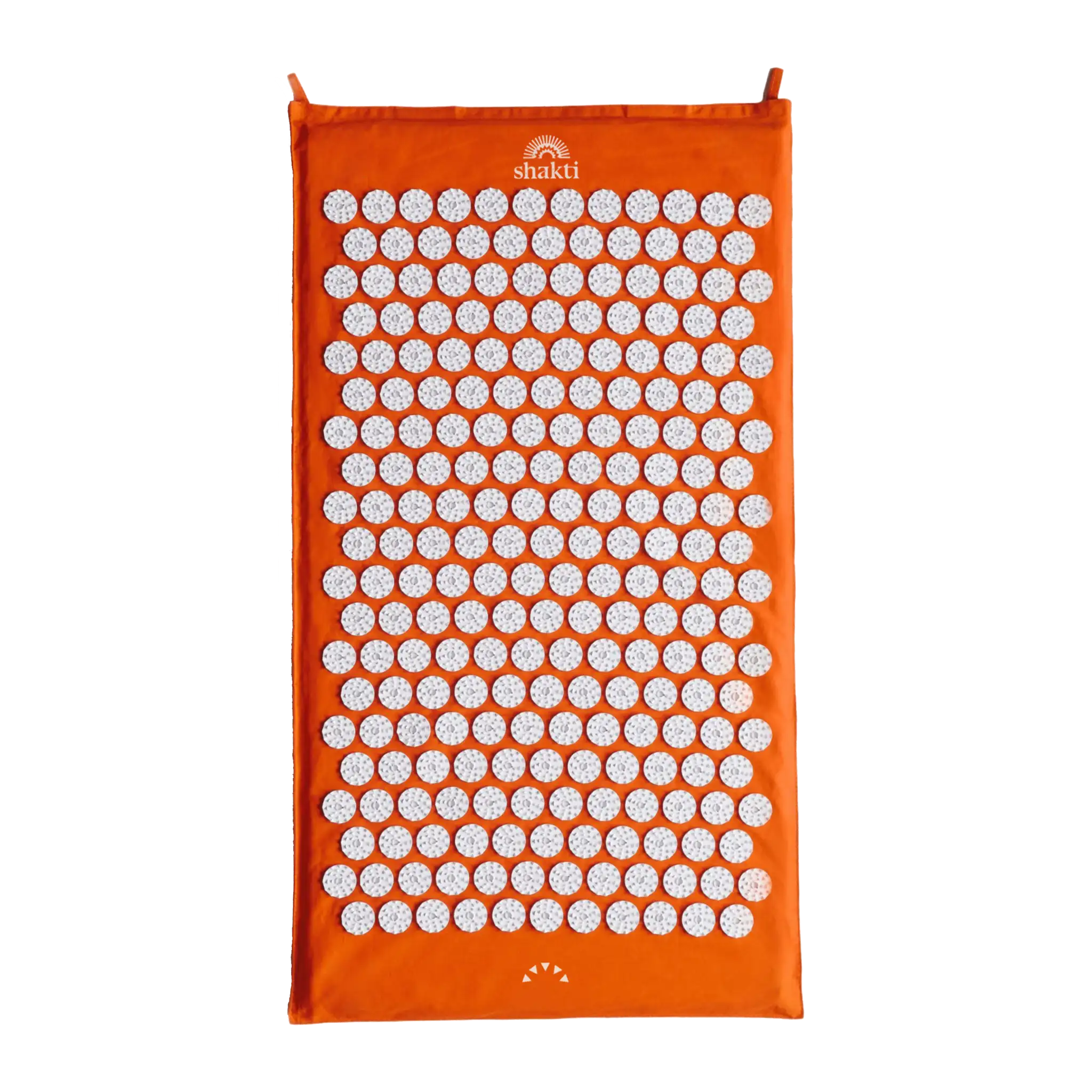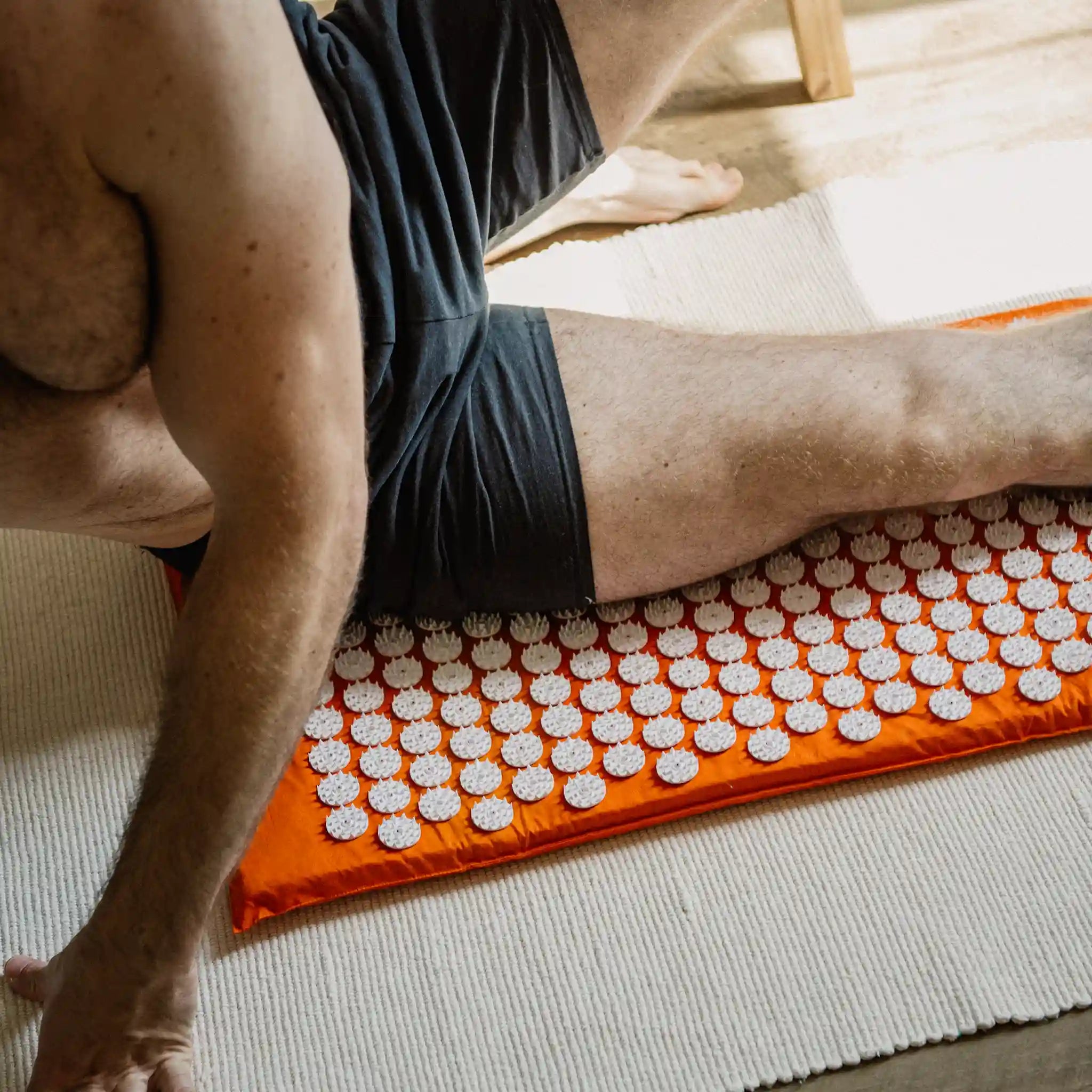Selfcare - the art of looking after yourself
"We live a life marked by highs and lows, on whose rocky paths we also have to drag along our stubborn inner demons," writes author Jacquelin Floßmann about the balancing act between self-care, self-optimization, and laissez-faire. It's not just since 2020 that "self-care" has been on everyone's lips, with daily workout routines on Instagram and homemade sourdough from lockdown. But what is it actually? How do you make room for self-care in your everyday life? Why is it so important to actively take care of our well-being? And what do you do when your inner pig simply throws your hard-earned self-care routine out the window?
Questions upon questions. To answer them, we asked an expert on self-care (in the workplace) how to establish healthy routines, looked at what the term actually means, and developed the ShaktiMat Self-Care UNchallenge so that we can start the new year feeling stronger together. You can find all this and more in this article:
Never again without!
"The ShaktiMat is an integral part of my self-care routine. Whenever I feel stressed and out of sorts, I lie down on it. Preferably covered up and in front of the fireplace. It's pure wellness!"
- Laura
What exactly is self-care?
The World Health Organization (WHO) defines self-care as "the ability of individuals, families, and communities to promote health, prevent disease, maintain health, and cope with illness and disability, with or without the support of a health care provider." According to the WHO, this concept includes general and personal hygiene, nutrition, lifestyle, and environmental and socioeconomic factors.
In short: Everything we do to take care of our personal needs and our physical and mental well-being is described as self-care.
Sounds pretty essential. Then we can dispel the rumor that self-care is just yoga, meditation, and incense sticks! Self-care is anything that is good for YOU. That could meanlying downon yourShaktiMat and simply becoming aware of your body parts; unleashing your inner Jane Fonda with an 80s dance workout, or yes—practicing a yoga flow (Anina Gepp, 2017).
If you're interested in how to effectively combine acupressure and meditation, we have anexciting blog articleforyou here.

By using the ShaktiMat you can stimulate blood circulation and relax your muscles.
Why do such activities in particular often fall at the end of our to-do list? Especially in a (working) world with increasing pressure and stress, which leads to psychological strain.
We have compiled further reading material for you on the subject of desk work in the following blog article: Generation Schreibtisch: So hilfst du deinem Körper durch die Arbeitswoche.
Why it pays to take good care of yourself.
Because, unfortunately, taking care of yourself is still often considered weak, selfish, or taboo. Why we should change the way we think about self-care:
According to the US Department of Health and Human Services (October 23, 2020), sufficient physical activity, a balanced diet, avoiding obesity, [...] many chronic diseases prevalent in old age can be prevented or at least positively influenced in their further course by a healthy lifestyle. This is a serious argument when you consider that around 50 million people in the EU suffer from mental illness. This also has an impact on work:we are absent from work three times as long (an average of 36 days!) due to mental illness than due to other illnesses(Federal Ministry of Health, October 23, 2020).
Self-care is like putting on an oxygen mask on an airplane: help yourself first so you can help others. Win-win. Not lose-lose!
How to bring more well-being into everyday life?
Let's face it - nothing works without the right motivation. Why should it? After all, we want to do something good for ourselves. That's why it's important that you have a clear goal in mind that motivates you and makes you want to do it again in "weak moments". So it's best to take a quiet minute. Think about the why and what habits will help you live your ideal life. Not an easy task. But the clarity you gain from this exercise will make your journey much easier. Because once you have your vision in mind, the little stumbling blocks in the process won't seem so big and insurmountable.
Make successes visible!
You can go one step further by creating a tracking or reward system. You can find inspiration for what this might look like on platforms such as Pinterest or similar websites—or you can let your creativity run wild and create your own system tailored to your needs.
It is important to note that a tracking method like this should not be used to see how often you have failed to do something new. Instead, it should show you how often you are already making room for your new self-care routine in your everyday life. Be sure to set yourself small milestones (such as treating yourself to a scoop of ice cream if you manage to do the desired mindfulness activity four out of seven days). These mini victories will help you stay on track and not feel overwhelmed.
What else helps? Finding like-minded people and motivating each other. In ourFacebook group, for example, youcanexchange ideas with others—for example, about your experiences with acupressure. All you have to do is be open and let yourself be inspired.
Get help and support!
We asked one of the experts on well-being and mental health—Nele Groeger from the SHITSHOW agency for mental health—to answer your questions on the topic of mental health and self-care:
Redaktion: Erzähle uns doch kurz etwas über deine Arbeit, Mental Health nahbar und erlebbar zu machen.
Nele: Ich arbeite als Beraterin und Kommunikationstrainerin bei SHITSHOW. Als SHITSHOW verfolgen wir die Mission, mentale Gesundheit am Arbeitsplatz zu entstigmatisieren – und sie zu fördern. Dafür bieten wir verschiedene Formate an, wie zum Beispiel Trainings für Teams und Führungskräfte, wir halten Vorträge und Workshops und arbeiten mit Tools, die Verständnis und Empathie fördern.
Redaktion: Wie mache ich Dinge zu meiner Routine, die mir guttun?
Nele: Um Routinen zu etablieren, ist es wichtig, mit möglichst kleinen Schritten anzufangen. Wenn ich zum Beispiel gerne mehr joggen gehen möchte, aber die 30 Minuten jeden zweiten Tag, die ich mir vornehme, nie über mehr als zwei Wochen tatsächlich mache, dann kann es helfen, sich selbst auszutricksen und zu sagen: Dann mach ich eben nur 10 Minuten. Oftmals ist man dann schon so bei der Sache, dass man einfach weitermacht. Es hilft auch, Dinge unübersehbar zu machen, also die Laufsachen schon neben das Bett zu legen, wenn man morgens losrennen will. So wenige Hürden wie möglich zwischen mir und dem, was mir guttut – das ist das Motto.
Redaktion: Was bedeutet Selfcare und Wohlbefinden für dich? Welchen Stellenwert hat es in deinem Alltag?
Nele: Selfcare ist ein wichtiger Bestandteil in meinem Alltag. Auch, wenn ich es nicht immer genauso nenne. Leider ist der Begriff mittlerweile ein wenig abgenutzt und wird sofort mit Schaumbädern und teuren Bodylotions assoziiert. Aber eigentlich kann Selfcare alles sein, was guttut. Und das ist natürlich sehr individuell. Für mich bedeutet Selfcare in erster Linie, Zeit für meine eigenen Bedürfnisse zu haben und einfach mal gar nichts zu machen – gerne auch mal über ein paar Tage lang. Niemandem antworten zu müssen, keine Verpflichtungen zu haben und sich dieses Gefühl von ‚Leerlauf‘ auch ohne schlechtes Gewissen zuzugestehen, das ist für mich Selfcare. Wenn ich so darüber nachdenke, dann hat Selfcare vielleicht auch ganz viel mit einer inneren Haltung zu tun, viel weniger damit, was ich im Außen Glamouröses mache. Sich selbst wertzuschätzen und Gutes tun zu wollen ist die Grundlage.
Redaktion: Was würdest du Leuten antworten, die behaupten: "Ich habe jetzt einfach keine Zeit für Selfcare. Ich kann es mir nicht leisten neben Job und Familie auch noch jeden Tag auf dem Sofa zu liegen und nichts zu tun."
Nele: Zuallererst würde ich sagen: Ich verstehe dieses Gefühl und die Gedanken dahinter. Und auch: Es kann sein, dass genau das zutrifft! Gerade in der Corona-Krise mussten viele Menschen Enormes leisten – Kinderbetreuung, Homeschooling und Job irgendwie und ohne Hilfe zu balancieren ist, seien wir ehrlich, ein Ding der Unmöglichkeit, wenn man gesund bleiben will im Kopf. Es ist wichtig, die Belastungen anzuerkennen, die manche Menschen in unserer Gesellschaft täglich schultern müssen. Und genauso wichtig ist es, auch in solchen Momenten nach Lösungsstrategien zu schauen: Was kann ich mir – auch wenn es nur etwas ganz Kleines ist – heute Gutes tun? Und wenn ich absolut keine Zeit habe: Was kann ich tun, um mir wenigstens ein bisschen davon zu verschaffen? Vielleicht regelt man dann das eigene Anspruchsdenken herunter oder man gewöhnt sich daran, öfter mal um Hilfe zu bitten. Selfcare kann auch bedeuten, kein Super-Dad oder Super-Mom zu sein oder am dritten Tag in Folge Nudeln mit Tomatensauce zu kochen.
Redaktion: Wie können wir andere unterstützen, wenn einfach alles zu viel wird?
Nele: Wenn es einer Person im eigenen Umfeld nicht gut geht, ist eine Sache am wichtigsten: Zuhören und offene Fragen stellen. Ein ehrliches: ‚Hey, wie geht es dir eigentlich gerade? Ich habe den Eindruck, dass du dich gerade zurückziehst.‘ kann sehr, sehr viel bewirken. Dabei ist es wichtig, immer beim eigenen Erleben zu bleiben und keine Mutmaßungen zu äußern. Also in der eigenen Person zu sprechen und die eigenen Eindrücke zu schildern. Wenn sich eine Person zurückzieht, hilft es, immer wieder Gesprächsangebote zu machen und auch dann Einladungen auszusprechen und die Person proaktiv willkommen zu heißen, wenn sie soziale Interaktionen meidet. Grundsätzlich gilt, dass es immer gut ist, die Person zu fragen: ‚Was brauchst du gerade?‘, ‚Wie kann ich dich unterstützen?‘. Und, wenn es einem selbst zu viel wird, Grenzen wertschätzend kommunizieren und auch die eigene psychische Gesundheit nicht aus den Augen lassen. Es geht in erster Linie darum, zu zeigen, dass man die Veränderungen beim anderen wahrnimmt. Nicht darum, die Lösung für die Probleme parat zu haben.
Redaktion: Du arbeitet täglich daran, mehr Wohlbefinden in Unternehmen zu bringen und Bewusstsein für mentale Gesundheit im Arbeitsumfeld zu schaffen. Was kann jede*r Einzelne im eigenen Job dafür tun?
Nele: Wenn wir an Arbeit und mentale Gesundheit denken, ist die erste Assoziation häufig, dass Arbeit uns stresst und belastet. Studien zeigen aber deutlich, dass Arbeit uns auch mental stabilisieren, Sinn stiften und zu unserem Wohlbefinden beitragen kann. Damit sie dies tut, gibt es einige Stellschrauben, an denen wir drehen können. Auf der individuellen Ebene geht es zum einen darum, sich selbst besser kennenzulernen. Zu wissen, auf welche Stressoren man sensibel reagiert und welche Strategien einem helfen, Stress zu minimieren, ist ein wichtiger Teil individueller Prävention. Zu wissen, wo man Hilfe bekommt, wenn man alleine nicht weiterkommt, ist ein anderer. Uns ist es aber wichtig, auch den Aspekt der Kommunikation für die eigene mentale Gesundheit zu berücksichtigen: Bin ich in der Lage, zu sagen, wenn es mir zu viel wird? Kann ich gesunde Grenzen setzen und mich selbst schützen? Und spätestens dann wird deutlich, dass psychische Gesundheit nicht nur eine Frage der eigenen Einstellung und Coping-Skills ist, sondern auch eine des Arbeitsumfeldes und der Beziehungen, die wir dort führen.
Redaktion: Welche Langzeitfolgen siehst du am kritischsten, wenn man sich nicht um sich selbst kümmert – auch in stressigen Zeiten?
Nele: Die Langzeitfolgen davon, seine eigenen Grenzen ständig zu übergehen und sich nicht um das eigene Wohlbefinden zu kümmern, sind natürlich ein erhöhter Stresspegel. Und der kann uns langfristig krank machen – das wissen aber leider immer noch zu wenige Menschen. Dass Stress ein Faktor in der Entstehung einer psychischen Erkrankung sein kann und man sich mit zu viel Arbeitseifer vielleicht in eine Angsterkrankung, in ein Burnout oder eine Depression katapultiert, ist leider immer noch viel zu wenig bekannt. Auf gesellschaftlicher Ebene finde ich es kritisch, dass Stress auf diese Art normalisiert wird. Überarbeitet sein gehört zum guten Ton und es wird eine Realität geschaffen, in der es nicht ok ist, Pausen zu machen und auf sich zu achten.
Redaktion: Und was empfiehlst du Menschen, die zwar gerne etwas mehr für sich tun würden, sich aber vom Überangebot und dem damit einhergehenden Druck überfordert fühlen?
Nele: Denen würde ich empfehlen, klein anzufangen – und vor allem darauf zu hören, was einem selber guttut. Selfcare muss nicht bedeuten, morgen mit Meditieren anzufangen (obwohl das super helfen kann). Es kann auch heißen, den Balkon zu bepflanzen oder zum Lieblingssong zu tanzen oder am Auto rumzuschrauben. Wenn Selbstfürsorge zum Druck wird, hat sie ihr Ziel eindeutig verfehlt. Wenn man etwas Neues ausprobieren und sich aus seiner Komfortzone wagen will, kann es helfen, es mal mit einem/r Freund*in zu machen, zum Beispiel, mal mit zum Sport zu gehen. Gemeinsam Neues zu entdecken macht häufig mehr Spaß. Und: Keine Scheu haben, Sachen auch wieder zu verwerfen, wenn sie nicht zu einem passen. Wenn ich eher der Typ Auspowern bin und mich zum Yoga zwinge, helfe ich mir damit nicht wirklich.

Even if it's not easy at first, it's worth establishing positive routines.
So, the credo for more self-care in our lives is: make it normal! If exercise and healthy routines become as much a part of your everyday life as brushing your teeth, then self-care will become a matter of course. How can you achieve this? For example, make it a fixed appointment and agree with yourself to practice yoga with friends on Zoom for half an hour every Tuesday at 7 p.m. Or integrate new habits into existing ones: if you make your bed every morning after getting up, you can place the ShaktiMat on the duvet next to the pretty throw pillows. Then lie down on the acupressure mat for another ten minutes and meditate while you're at it. Morning self-care? Check!
By making it as easy as possible for yourself and introducing a certain regularity, it becomes much easier to stick with it. Plus, you won't have any time to argue with your inner couch potato. Just like brushing your teeth. So that you are mentally and physically prepared for everything you set out to do!
Sources:
- https://www.vogue.de/beauty/artikel/helfen-self-care-apps-wirklich-der-psychischen-gesundheit
- Jacquelin Floßmann (2020). "He who is free from guilt, let him throw the first cheese cube!", Vegan World, 01/2021, p. 25, https://veganworld.de/wp-content/uploads/VW_PLATZIERT_Gratis-komprimiert.pdf?utm_source=mailpoet&utm_medium=email&utm_campaign=veganes-weihnachtsessen-cbd-ol-hafercrunchys-von-bauckhof-adventskalender_125
- Self Care - Healthy habits in 6 easy steps. (n.d.) Retrieved 12/23/2020 from https://stardustandpantries.de/self-care-gesunde-gewohnheiten-in-6-einfachen-schritten-etablieren/
- "What do we mean by self-care?", World Health Organization, Retrieved 12/23/2020 from https://www.who.int/reproductivehealth/self-care-interventions/definitions/en/
- Nicole Carman (03/12/2020), "Why Self-Care Is Vital to Our Mental Health." Retrieved 12/23/2020 from https://www.psychreg.org/self-care-vital-mental-health/
- Anina Gepp (12/18/2017), "55 simple self-care activities - mind, body, spirit". Retrieved 12/23/2020 from https://aniahimsa.com/2017/12/18/55-einfache-self-care-aktivitaeten-geist-koerper-seele/
- Federal Ministry of Health (Oct. 23, 2020). "Health promotion and prevention for older people." Retrieved 12/23/2020 from https://www.bundesgesundheitsministerium.de/praevention-aeltere-menschen.html
- Federal Ministry of Health (Oct. 23, 2020). "Promoting mental health and well-being in the workplace." Retrieved 12/23/2020 from https://www.bundesgesundheitsministerium.de/themen/praevention/betriebliche-gesundheitsfoerderung/gesundheit-und-wohlbefinden-am-arbeitsplatz.html


